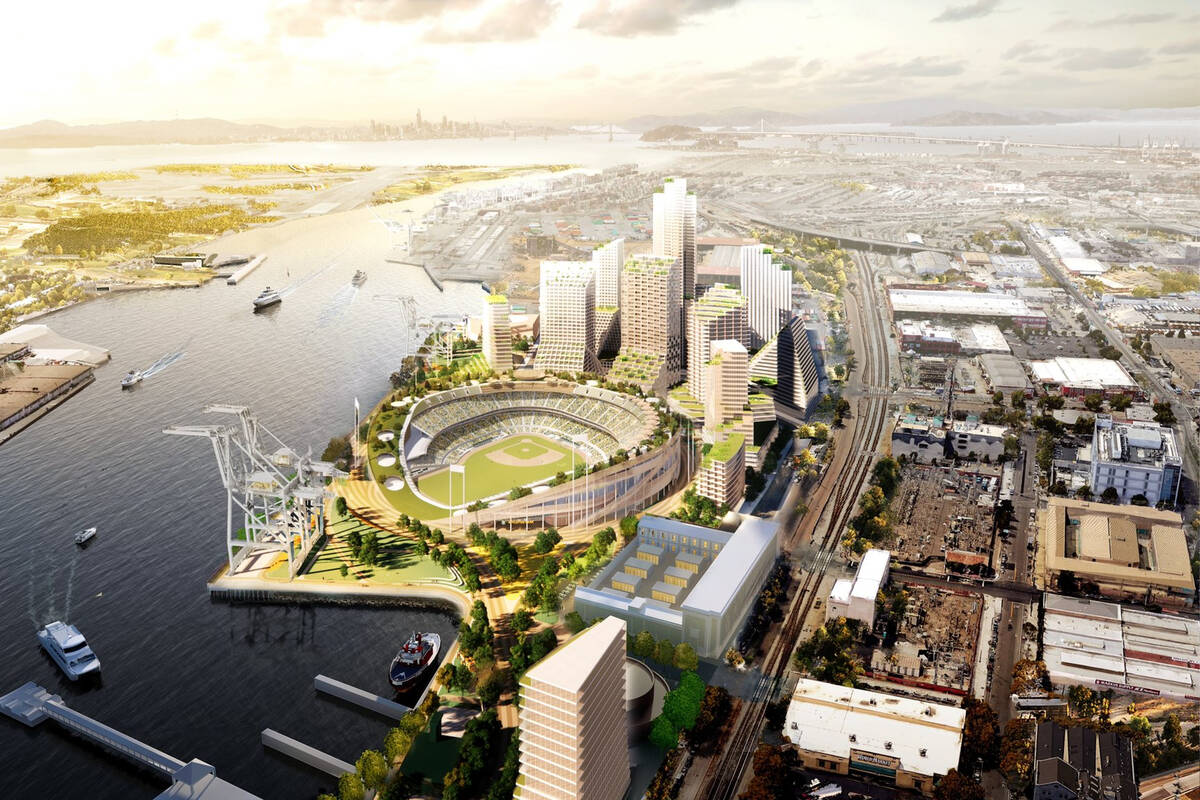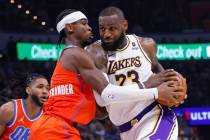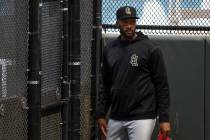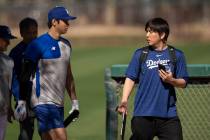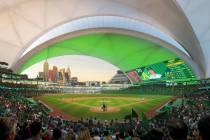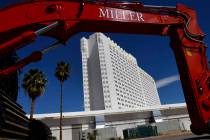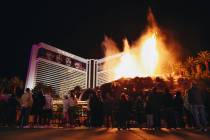Oakland council votes against adding A’s ballpark plan to ballot
Oakland residents will not be asked to vote in November on whether they support funding a waterfront ballpark for the Oakland Athletics, a decision that may help keep the team in the Bay Area.
The Oakland City Council voted late Tuesday against adding a referendum to the November ballot regarding public funding for infrastructure costs related to the A’s proposed $12 billion mixed-use project at the Port of Oakland’s Howard Terminal. The centerpiece of the proposed project is a $1 billion waterfront ballpark to replace the A’s current home, RingCentral Coliseum.
Had the council agreed to put the issue to a referendum, it could have derailed efforts to keep the team from leaving Oakland and relocating to Las Vegas, A’s President Dave Kaval told the Las Vegas Review-Journal last week.
“That (going to a public vote) could doom our efforts in Oakland,” Kaval said. A November referendum could have pushed the ballpark search into 2023, something Kaval opposes.
As it is, the A’s will continue to pursue “parallel paths” toward getting a new ballpark either in Oakland or Las Vegas.
The A’s brass have made multiple trips to Las Vegas to scout potential sites for a new ballpark to call home. They’re down to two potential sites in Southern Nevada, both located on or near the Resort Corridor.
There is no timeframe for when a final site will be selected and plans for a ballpark would be made public.
Tuesday’s decision is the second recent vote falling in favor of the A’s and their pursuit of a ballpark in Oakland. Last week the San Francisco Bay Conservation and Development Commission voted to remove the port priority use designation on the 56-acre Howard Terminal site, allowing the development plan to move forward.
The proposed referendum would have been advisory in nature and would have served only as public guidance for the city council’s potential decision on the project.
Elizabeth Lake, assistant city administrator, likened the ballot measure to an “expensive survey.”
Councilmembers Carroll Fife and Noel Gallo were the only members of the eight-member panel to vote in favor of adding the question to the ballot. Councilmember Rebecca Kaplan abstained from voting.
Some council members didn’t rule out calling for a special election in January, depending on the specifics of the project’s financials. The city is expecting the A’s to present them with a cost-benefit analysis this fall.
“At that time we could choose to create a special election,” Councilmember Dan Kalb said. “There’s a whole process to do that with the county, but cities are allowed to call special elections … I’m not suggesting that I want that or I expect that to happen. But that’s always an option we have on the table if we feel the deal before us should go to the voters at that time.”
Both the A’s and Major League Baseball Commissioner Rob Manfred are eager for some finality to the team’s years-long search for a new ballpark. Last month, Manfred said he wanted the search to come to an end soon and Kaval has said he hopes it can be concluded by the end of the year.
The A’s continue to negotiate with the city of Oakland on a binding development agreement for the waterfront project. The two sides have been negotiating their differences over the past year with key sticking points centering on community benefits and infrastructure work.
The Howard Terminal project would include a 35,000-capacity ballpark, 3,000 residential units, 400 hotel rooms, 1.5 million square feet of office space and 270,000 square feet of mixed retail, cultural and civic uses. There would also be a 3,500 seat performance theater and 18 acres of public parks.
Contact Mick Akers at makers@reviewjournal.com or 702-387-2920. Follow @mickakers on Twitter.



